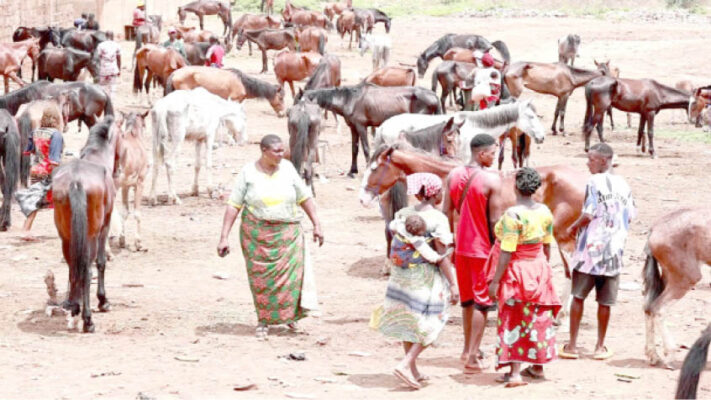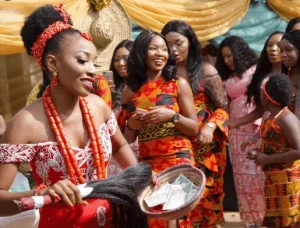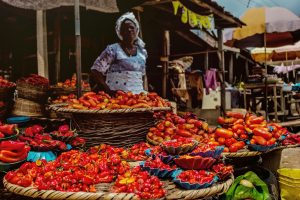
Obollo Afor in Enugu State is home to a bustling horse market. The region is well-known for its varieties of yellow bananas, along with rice, cashew nuts, yams, and its numerous traders, while visiting it will be fun to go see these horses.
In several parts of northern Nigeria, horses can be found in considerable numbers. They are raised by the royal family, featured in the yearly durbars, essential to the game of polo, and present at numerous other occasions throughout the emirates. They eventually started to be exported southward all of a sudden. How did horses get to Obollo Afor, where it is now considered a delicacy to consume horse meat? Even among women, the business is flourishing in the neighborhood.
The region has a large tract of agricultural land with numerous plains, valleys, and hills. A significant intersection as you approach the South East is Obollo Afor. It is equally well-known for its horses and for the horse flesh that is a specialty there. The demand for the meat rises during celebrations like weddings, coronations, and funerals.
A few Nupe traders from Bida brought horses to this region of the South East in the nineteenth century. Obollo Afor is home to horses of various sizes and colors. Each horse is tethered to a post that is buried in the earth. Women occasionally lead the horses away, and young men give them new grass to eat. While some clean the trailers and maintain order at the market, others lead the horses out of the trailers.
There are drivers who traveled a great distance to Obollo Afor, butchers, and middlemen. These activities sustain the local equine economy. Ifeanyi Ezeme, who originates from a reputable family of horse traders in Obollo Afor, organizes market events. Horse-trading is a common practice among local households. The Chinedum Horse Dealers Association’s past chairman is Ezeme.
The horses are delivered from locations like Jigawa, Kano, Maiduguri, Jigawa, Sokoto, Katsina, and Zamfara. Every day in Obollo Afor market, two to three trailers are offloaded. There are 45 horses in one trailer. There are several female butchers working at the market where horse meat is offered for sale. Some of them are widows, and the trade in horse meat gives them the means to sustain their families.
Enormous local demand:
135 horses are delivered daily to the Chibudem animal depot. This is the same as three trailer loads, each containing 45 horses. Seasons of celebration saw a large increase in the population. This demonstrates the enormous local demand for horses in the Enugu State region’s Nsukka/Obollo Afor axis.
A sit-at-home order’s effects:
The Indigenous Peoples of Biafra (IPOB) sit-at-home order that they placed on the South East had a detrimental effect on the horse business of Obollo Afor and other horse markets in the area. As a result of the decree, the South East’s economy is forced to close on Mondays for the whole day.
Challenges faced at the horse depot:
Lack of water
Lack of water has been a problem at the horse market. Although the Obollo Afor don’t always have water, horses frequently consume it. Since they need water to maintain the environment clean, specifically, a scarcity of water has an impact on people’s health.
The horse industry in northern Nigeria was impacted by even more unfavorable weather conditions during the rainy season. The finest times for this business are during holidays like Christmas and Easter.
Traditional kings and queens are crowned on horses. On important occasions like rallies, religious gatherings, funerals, etc., they also employ it. In the nearby community of Enugu Ezike, you require a horse to bury someone.
Numerous women are constantly seated behind tables with previously cut meats in various sizes, making the horse meat market packed. Buyers are often in the region looking to make quality purchases. Horse bones that would be purchased and used as animal feed by a firm are stacked up in a market corner.


